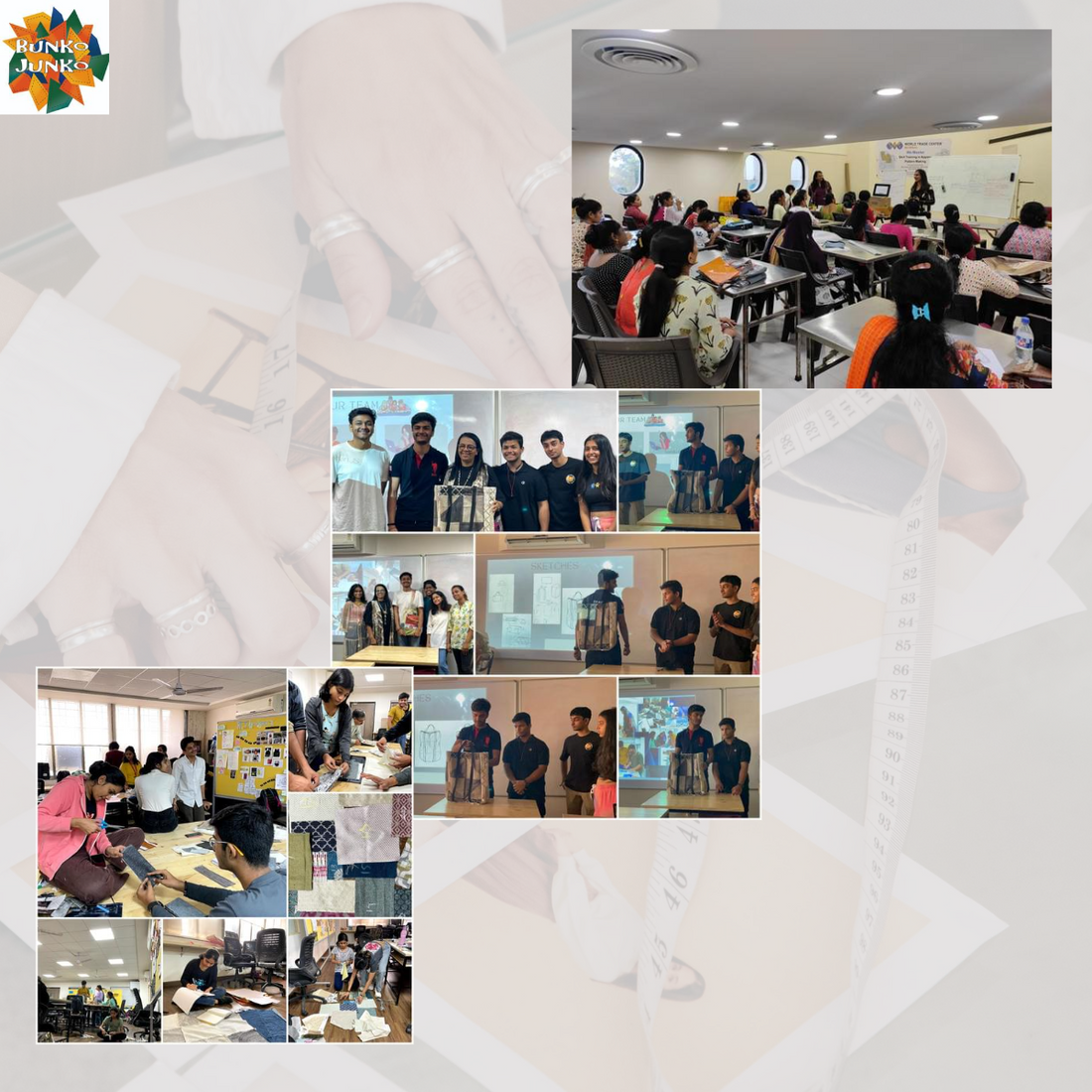
🎓 Fashion Education for Circularity and Sustainability: Building a Sustainable Future 🌍
Share

[ pic :Kj Somaiya Design school ]
🌿 Curriculum Integration: Fashion education programs should integrate sustainability and circularity into their core curriculum. This includes teaching students about sustainable materials, ethical production practices, waste reduction, and circular business models. By instilling these principles from the beginning, future professionals will be better prepared to contribute to a more sustainable fashion industry.
🤝 Industry Collaboration: Collaborating with industry stakeholders is crucial in fashion education. By partnering with sustainable fashion brands, organizations, and experts, educational institutions can provide real-world insights and practical experiences to students. Guest lectures, industry projects, and internships can expose students to sustainable practices and help them develop relevant skills.
🤝 Industry Collaboration: Collaborating with industry stakeholders is crucial in fashion education. By partnering with sustainable fashion brands, organizations, and experts, educational institutions can provide real-world insights and practical experiences to students. Guest lectures, industry projects, and internships can expose students to sustainable practices and help them develop relevant skills.
🔍 Case Studies and Best Practices: Incorporating case studies and best practices into fashion education can provide students with real-life examples of successful sustainability initiatives. Analyzing and discussing these examples helps students understand the challenges and opportunities associated with sustainable fashion, encouraging critical thinking and problem-solving skills.
💡 Innovation and Technology: Fashion education programs should cover the latest innovations and technologies that contribute to sustainability and circularity. This includes teaching about materials recycling, digital design and production, blockchain traceability, and data analytics for sustainable decision-making. By equipping students with knowledge of emerging technologies, we empower them to be at the forefront of sustainable fashion innovation.
🌐 Global Perspectives: Fashion education programs should offer a global perspective on sustainability, considering social, environmental, and cultural aspects. Incorporating topics such as fair trade, diversity and inclusion, and the impact of fashion on global communities fosters a holistic understanding of sustainability in a global context.
🧠 Skills and Knowledge: Professionals in the sustainable fashion field require a diverse set of skills and knowledge. This includes understanding sustainable design principles, knowledge of eco-friendly materials and manufacturing processes, supply chain management for transparency and ethical sourcing, circular business models, and communication skills to advocate for sustainability initiatives.
💡 Innovation and Technology: Fashion education programs should cover the latest innovations and technologies that contribute to sustainability and circularity. This includes teaching about materials recycling, digital design and production, blockchain traceability, and data analytics for sustainable decision-making. By equipping students with knowledge of emerging technologies, we empower them to be at the forefront of sustainable fashion innovation.
🌐 Global Perspectives: Fashion education programs should offer a global perspective on sustainability, considering social, environmental, and cultural aspects. Incorporating topics such as fair trade, diversity and inclusion, and the impact of fashion on global communities fosters a holistic understanding of sustainability in a global context.
🧠 Skills and Knowledge: Professionals in the sustainable fashion field require a diverse set of skills and knowledge. This includes understanding sustainable design principles, knowledge of eco-friendly materials and manufacturing processes, supply chain management for transparency and ethical sourcing, circular business models, and communication skills to advocate for sustainability initiatives.
